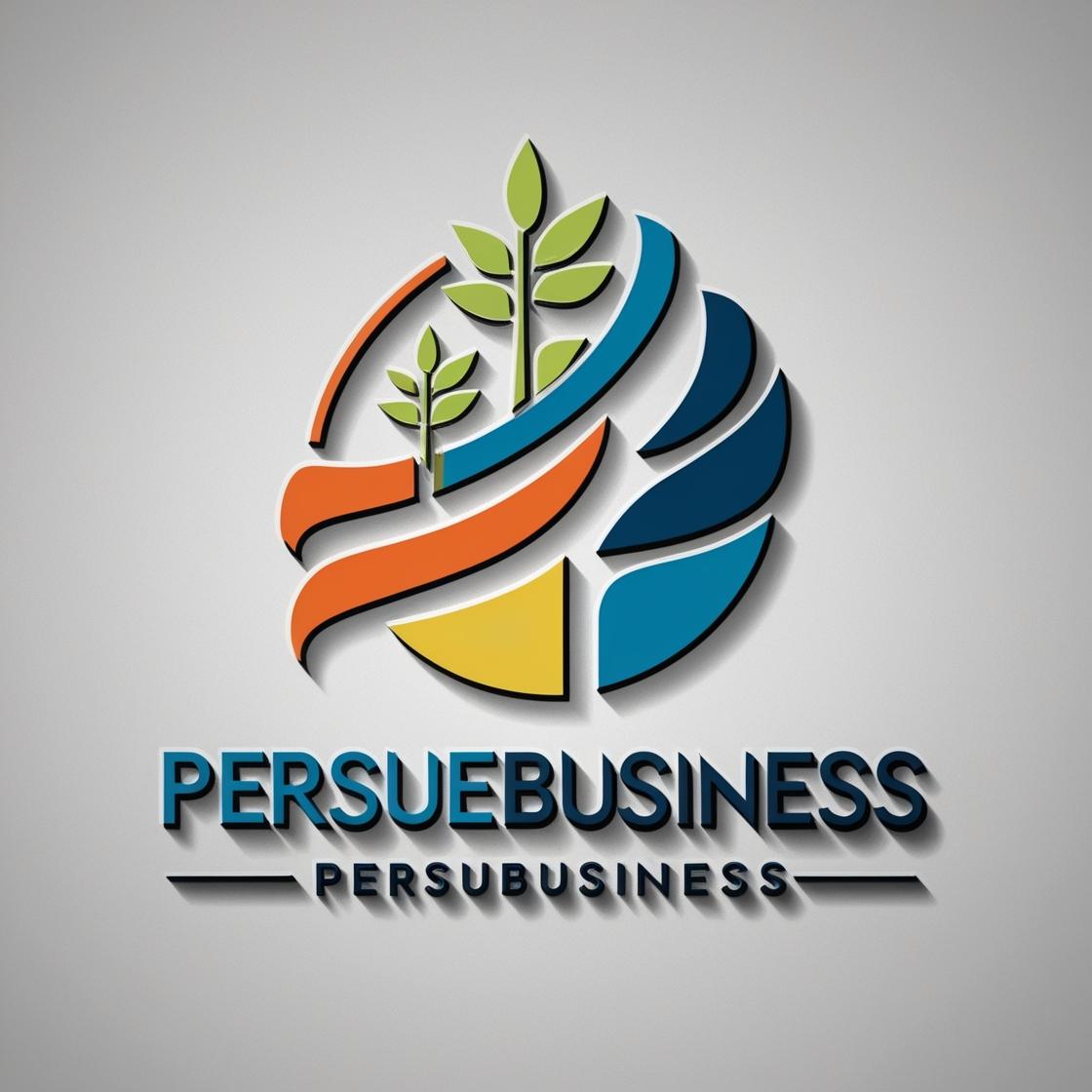Imagine this: you’re a real estate agent striving to stand out in a competitive market. Every day, you face the challenge of attracting potential clients and showcasing properties in a way that resonates with them. In today’s fast-paced, digitally driven world, having a strong marketing strategy is more crucial than ever. It’s not just about selling houses; it’s about building trust, creating meaningful connections, and staying ahead of the curve.
In this guide, we’ll explore the most effective strategies to elevate your real estate business. From leveraging social media platforms like Facebook and Instagram to harnessing the power of video content and email marketing, we’ll cover it all. Our focus is on innovative tactics and strategic messaging that not only generate quality leads but also convert prospects into loyal clients.
Whether you’re a seasoned agent or just starting out, understanding how to navigate the evolving landscape of real estate marketing is essential. By combining data-driven insights with creative approaches, you can position yourself as a trusted expert in your area. Let’s dive into the key strategies that will help you succeed in this dynamic field.
Key Takeaways.
- A strong marketing strategy is vital for success in today’s competitive real estate market.
- Content creation, educational events, and digital advertising are key to building your brand.
- Digital tools, SEO, and social media presence help generate quality leads.
- Innovative tactics and strategic messaging are essential for building trust and converting prospects.
- Combining data-driven insights with creative approaches positions you as a trusted expert.
Introduction to Real Estate Marketing.
In today’s competitive real estate landscape, effective marketing is essential for connecting with potential clients and showcasing properties. Real estate marketing involves strategies that help agents build trust and establish a strong online presence.
Traditionally, real estate marketing relied on print ads and in-person networking. However, the rise of digital platforms has shifted focus to social media, websites, and SEO. Today, a robust online presence is crucial for reaching buyers who start their journey online.
Studies show that 92% of homebuyers begin their search online. This shift underscores the importance of a digital-centric approach. Agents must adapt by creating engaging content and leveraging social media to stay competitive.
A successful marketing strategy includes content creation, social media engagement, and SEO. These elements work together to attract and retain clients. By understanding buyer behavior and leveraging digital tools, agents can position themselves as market experts.
In the following sections, we’ll explore these strategies in depth, providing actionable tips to enhance your real estate business.
Benefits of a Comprehensive Marketing Strategy.
A well-crafted marketing strategy serves as the backbone of any successful business, especially in competitive industries. It not only elevates brand presence but also enhances lead generation, bridging the gap between online and offline efforts.
By uniting digital and traditional techniques, a comprehensive strategy ensures consistent messaging across all platforms. This approach builds trust and authority with clients and potential leads, making your business a go-to expert in the field.
Reaching your audience across various channels—social media, SEO, and offline tactics—maximizes your visibility. Statistics show that integrated strategies improve conversion rates, ensuring your efforts yield tangible results.
Coordinated marketing efforts are both efficient and effective. Each component, from content creation to digital advertising, works in synergy, saving time and resources while amplifying impact.
Content Marketing Tactics for Your Real Estate Business.
Content marketing has become a cornerstone of modern real estate strategies, offering a powerful way to engage clients and establish authority. By creating valuable and relevant content, agents can address specific client needs while fostering trust and loyalty.
Using Blog Posts to Answer Client Questions.
Blog posts are an excellent tool for addressing common client questions. Whether it’s about understanding the home-buying process or tips for staging a property, providing clear and helpful information positions you as a trusted expert. For example, a guide on “10 Essential Steps for First-Time Homebuyers” can resonate deeply with your target audience, offering practical value while showcasing your expertise.
Such content not only educates but also builds rapport. When clients feel informed, they are more likely to trust your guidance throughout their real estate journey.
Generating Topics with AI Assistance.
Staying creative and relevant can be challenging, but AI tools can streamline the process. These tools can analyze market trends and client inquiries to suggest topics that resonate with your audience. For instance, AI might recommend a post on “Sustainable Home Improvements” based on current buyer interests.
By integrating SEO best practices into each blog post, you can improve visibility on search engines. This dual approach ensures your content reaches a broader audience while driving qualified leads to your website.
“The key to successful content marketing is understanding your audience’s needs and delivering value consistently.” – John Smith, Real Estate Marketing Expert
Incorporating video content alongside written posts can further enhance engagement. A video guide on “How to Prepare Your Home for Sale” can complement a written blog, offering a multimedia experience that caters to different learning preferences.
Ultimately, content marketing is about more than just writing blog posts. It’s about creating a resource that buyers and sellers turn to for guidance, thereby solidifying your position as a trusted authority in the real estate market.
Educational Events and Thought Leadership in Real Estate.
Positioning yourself as a thought leader in the real estate industry is a powerful way to build trust and attract clients. One effective strategy is hosting educational events like webinars and in-person seminars. These events not only showcase your expertise but also provide value to potential clients, fostering strong relationships.
Hosting Webinars and In-Person Seminars.
Webinars and live seminars offer a platform to discuss topics that resonate with homeowners and buyers. For instance, a webinar on “Maximizing Home Value Through Renovations” can address common concerns and offer practical solutions. By partnering with local contractors or designers, you can add credibility and depth to your presentations.
Creating engaging content is key. Focus on answering frequent homeowner questions, such as “How to Choose the Right Neighborhood” or “Understanding the Homebuying Process.” These topics not only educate but also position you as a trusted guide in their real estate journey.
Combining virtual and in-person events ensures you reach a wider audience. For example, a webinar on “Sustainable Home Improvements” can be followed by an in-person workshop, offering a comprehensive learning experience. This dual approach maximizes your reach and impact.
Real-life success stories highlight the effectiveness of educational events. Many agents have seen significant lead generation and client loyalty by hosting such sessions. By integrating these events into your marketing strategy, you can establish yourself as a knowledgeable and reliable resource in the real estate market.
Social Media Strategies to Boost Your Brand.
In the digital age, social media is a cornerstone for real estate agents looking to expand their reach and connect with clients. Platforms like Instagram, Facebook, and LinkedIn offer unique opportunities to showcase properties and build your personal brand.
Leveraging Instagram, Facebook, and LinkedIn.
Instagram and Facebook are ideal for sharing high-quality property photos and virtual tours. These platforms allow you to engage with your audience through interactive live sessions and storytelling posts. LinkedIn, on the other hand, is perfect for establishing yourself as a market expert by sharing industry insights and connecting with other professionals.
Creating Engaging Video Content.
Video content is key to capturing attention. Short, engaging videos can highlight property features or provide tips for homebuyers and sellers. For example, a video tour of a newly listed home can attract viewers and encourage shares, increasing your visibility.
Consistency is crucial. Posting regularly and using analytics to track engagement helps refine your strategy. By understanding what resonates with your audience, you can tailor your content to meet their needs and preferences.
Ultimately, a well-executed social media strategy can elevate your brand, generate leads, and foster lasting client relationships.
SEO and Website Optimization for Real Estate Marketing
In the digital age, a well-optimized website is your most powerful tool for attracting and engaging clients. SEO and website optimization are crucial for ensuring your real estate business stands out in search engine results and provides a seamless user experience.
Enhancing Your Online Presence with a User-Friendly Website.
A professional, user-friendly website is the foundation of your online presence. It’s where potential clients go to learn about your services, view property listings, and make informed decisions. Ensuring your website is responsive, loads quickly, and has intuitive navigation is essential for keeping visitors engaged.
Optimizing for local SEO is another key strategy. By incorporating locally relevant keywords, you can better target potential buyers in specific areas. For example, focusing on terms like “homes for sale in [Your City]” helps Google understand your geographic focus, improving your visibility in local search results.
Your website should also feature high-quality content, detailed property listings, and clear calls-to-action like lead capture forms. These elements work together to convert visitors into valuable leads. Regularly monitoring your website’s performance and adjusting your SEO strategy ensures you stay ahead of the competition.

By combining these tactics, you can create a website that not only ranks higher on Google but also delivers a exceptional user experience, setting your business up for long-term success.
Real Estate Marketing Essentials for Digital Success.
Mastering the fundamentals of digital marketing is crucial for any business aiming to thrive in today’s fast-paced environment. For real estate professionals, this means embracing a strategic blend of cutting-edge tools and timeless principles to stay ahead.
A well-rounded approach begins with a polished online presence, combining a professional website with active social media profiles. By optimizing your website for local SEO and maintaining engaging social media accounts, you create multiple touchpoints for potential clients to discover your services.
Quality content lies at the heart of any successful strategy. Whether through blog posts, video tours, or email newsletters, your content should educate and inspire. Pairing this with smart digital strategies ensures a steady flow of leads and fosters lasting client relationships.
Industry experts suggest focusing on consistency and integration. By balancing website optimization, social media engagement, and targeted email campaigns, you create a cohesive approach that amplifies your reach. This balanced strategy not only enhances visibility but also builds trust, essential for converting prospects into loyal clients.
Ultimately, the key to digital success is adaptability. Stay attuned to market trends, leverage innovative tools, and continuously refine your approach to meet the evolving needs of your audience. With the right mix of creativity and strategy, you can position your business as a trusted leader in the competitive real estate landscape.
Digital Advertising Strategies for Real Estate Agents
Digital advertising is a game-changer for real estate agents aiming to outshine competitors and attract targeted leads. In a crowded market, strategic ad campaigns can make all the difference in capturing attention and driving results.
Targeting Competitor Keywords with Google Ads.
One effective tactic is targeting competitor keywords through Google Ads. By bidding on keywords related to other agents or agencies, you can intercept potential clients searching for similar services. For example, using keywords like “homes for sale in [Your City]” ensures your ads appear when buyers are actively searching. This approach not only boosts your visibility but also positions you as a top choice in your area.
Retargeting Prospects with YouTube Pre-roll Ads.
Retargeting prospects who have visited your website is another powerful strategy. YouTube pre-roll ads offer a visual way to re-engage these visitors, keeping you top-of-mind as they browse online content. By creating short, engaging videos that highlight your expertise or showcase properties, you can draw viewers back to your website and encourage them to take action.
Success in digital advertising lies in precise targeting and compelling content. By combining Google Ads with YouTube retargeting, you create a robust strategy that captures both new and returning leads. Real-life examples show significant lead generation through these methods, proving their effectiveness in the competitive real estate landscape.
Local and Offline Tactics to Amplify Your Reach.
Building strong community ties is essential for real estate success. Local and offline strategies can significantly enhance your visibility and credibility.
Community Sponsorships and Strategic Partnerships.
Sponsoring local events or youth sports teams helps agents connect with potential clients. These efforts build trust and showcase your commitment to the community. Partnering with local businesses can also expand your network and referral opportunities.
For instance, collaborating with neighborhood vendors or hosting open houses at local cafes can create engaging experiences. Such initiatives not only promote properties but also foster lasting client relationships.

While digital methods offer broad reach, offline tactics provide unique advantages. They allow for personal interactions that build trust and loyalty, often leading to higher conversion rates. Balancing online and offline efforts creates a robust marketing strategy.
Innovative Tools and Trends in Real Estate Marketing.
Staying ahead in today’s fast-paced real estate industry requires embracing innovation. Emerging tools and platforms are revolutionizing how agents connect with clients and manage their marketing efforts. From advanced data analytics to AI-driven solutions, these innovations are streamlining tasks and enhancing results.
Adopting New Platforms and Technology Tools.
One of the most exciting trends is the rise of AI-powered marketing tools. These platforms analyze market data to predict buyer behavior, helping agents tailor their strategies more effectively. For instance, AI can suggest optimal listing times or identify high-potential leads based on online activity.
Another game-changer is the integration of CRM systems with social media platforms. This combination allows agents to track client interactions seamlessly, ensuring personalized communication and timely follow-ups. Tools like these not only save time but also improve client satisfaction.
Video content creation is also evolving. New apps now offer AI-generated video tours, enabling agents to showcase properties in minutes rather than hours. These tools not only save time but also ensure a professional presentation that captivates potential buyers.
Industry experts emphasize the importance of adaptability. By staying current with these innovative tools, agents can differentiate themselves in a competitive market and deliver exceptional value to their clients.
Content Repurposing and Lead Generation Techniques.
Repurposing high-performing content is a powerful strategy to capture leads and nurture prospects. By transforming successful blog posts into downloadable resources like checklists or guides, you can offer value that resonates with your audience while gathering essential contact information.
Transforming Successful Blog Posts into Lead Magnets.
Identifying top-performing content is the first step. Use analytics to pinpoint blog posts that engage readers the most. These posts are prime candidates for conversion into lead magnets such as downloadable PDFs or interactive quizzes.
Once identified, adapt the content into a format that provides immediate value. For example, a popular blog post on “10 Steps to Increase Home Value” can become a detailed guide or checklist. This not only enhances user experience but also serves as an incentive for visitors to share their contact details.
Integrating these lead magnets into email marketing campaigns further nurtures leads. By offering a series of valuable resources, you guide prospects through the sales funnel, building trust and establishing your expertise.
Practical examples include converting a blog post into a video or podcast. This multi-format approach maximizes reach and impact, ensuring your content connects with diverse audience preferences.
Crafting a Unique Brand Identity in a Competitive Market.
In a crowded marketplace, standing out requires more than just a logo or slogan. It demands a brand identity that resonates deeply with your audience and reflects your unique value proposition. For real estate agents, this means blending personal authenticity with strategic storytelling to create a memorable and trustworthy brand.
Personalizing Messaging to Build Trust.
Personalized messaging is the cornerstone of meaningful connections. By tailoring your communication to address the specific needs and preferences of your audience, you foster a sense of understanding and reliability. Whether through social media posts, video content, or email campaigns, ensure your message speaks directly to the buyer’s journey, making them feel seen and heard.
Using Lifestyle Content to Demonstrate Expertise.
Lifestyle content offers a powerful way to showcase your expertise while building rapport. Share behind-the-scenes glimpses of your daily activities, community involvement, and market insights to create an authentic narrative. For example, a video highlighting local hotspots or a social media series on home improvement ideas can position you as both a knowledgeable agent and a trusted local guide.
In conclusion, crafting a unique brand identity is about merging creativity with strategy. By personalizing your approach and sharing content that reflects your authenticity, you differentiate yourself in a competitive market. Remember, your brand is your story—make it one that resonates, inspires, and drives sustainable success.





0 Comments